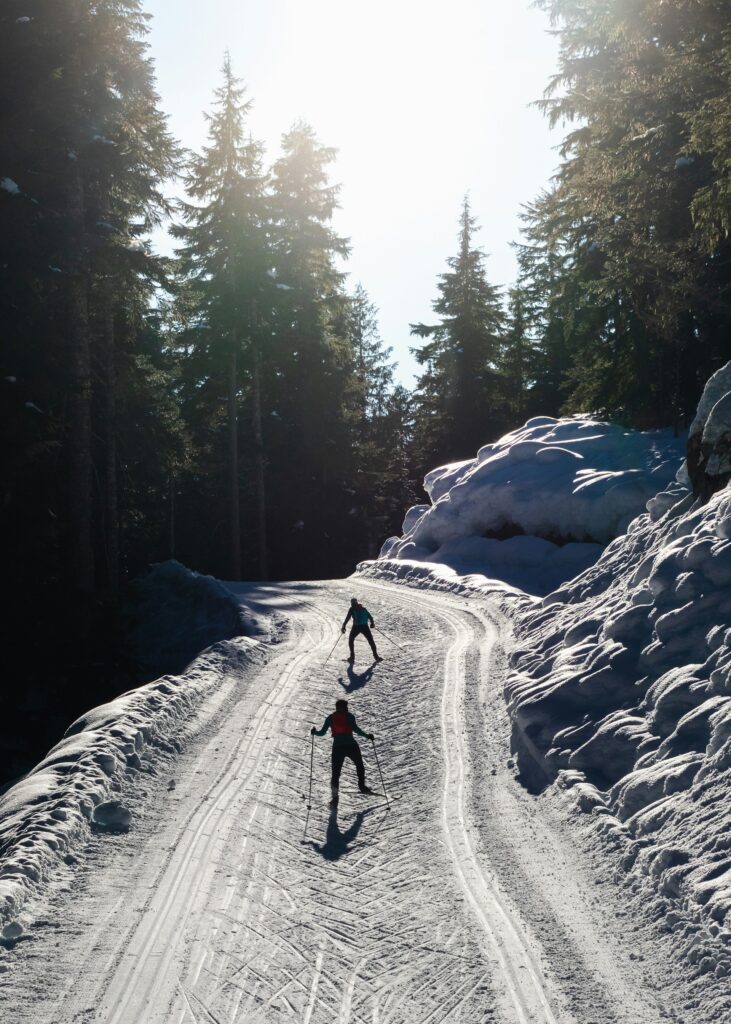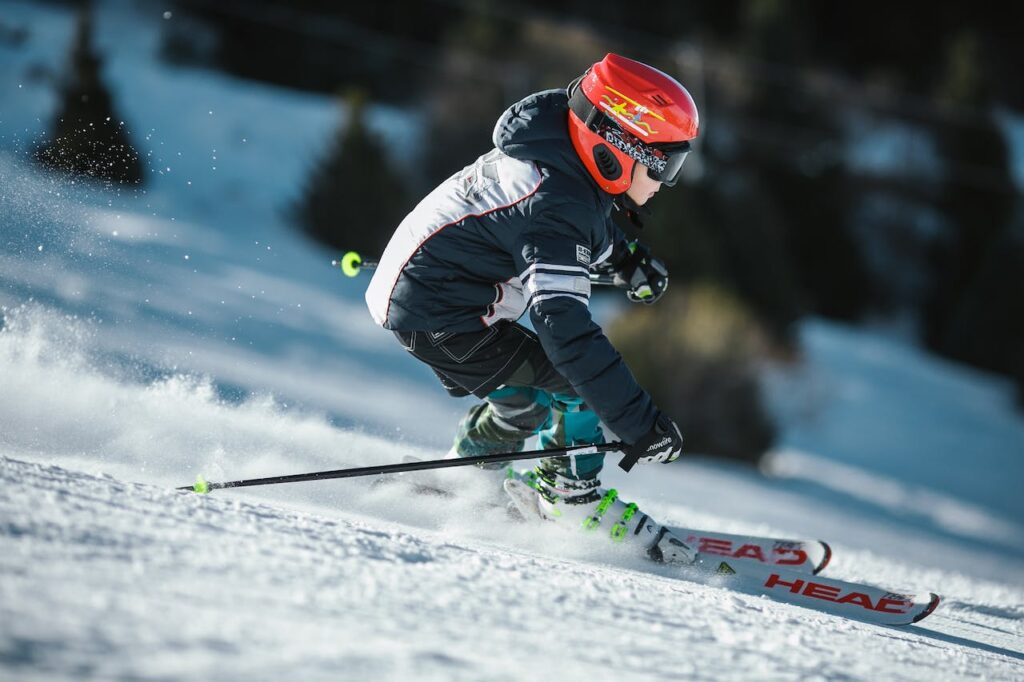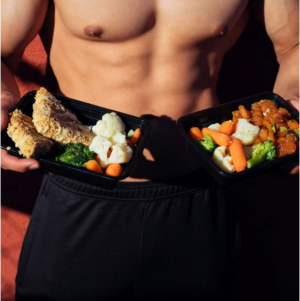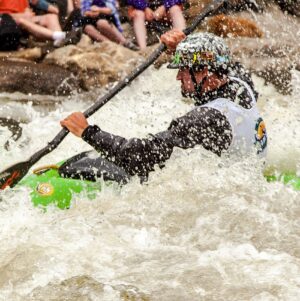Nutritional rules for cross-country skiing are essential for optimizing performance and endurance on the trails. What and how much to eat before training and long walks, during and after. The principles of nutrition when practicing cross-country skiing are similar to those used in other endurance sports. The difference lies in the caloric content and some peculiarities of nutrition on the distance. We tell you what to pay attention to in your cross-country skiing nutrition. What and how much to eat, how long before and how long after training, what to take with you on a long walk or training.
Calorie intake.
An hour of cross-country skiing can burn between 500 and 1000 calories, depending on your metabolism and body weight. This means you can burn about 2,000 to 3,000 calories in a long weekend workout. This energy needs to be replenished even if you want to lose weight, because nutrient deficiencies can lead to health problems.
Combining exercise and fasting will not lead to long-term effects. Exercise causes a strong feeling of hunger, which will inevitably lead to a breakdown – and everything will have to start all over again. It is important to follow basic nutritional principles and keep a small calorie deficit. Calculate your approximate calorie expenditure per day, including non-exercise expenditure, and subtract 300 kcal from this amount – this is your daily intake

5 nutritional rules for cross-country skiing.
1. Eat a varied diet.
In order to provide your body with all the necessary nutrients – proteins, fats, carbohydrates, vitamins, minerals and fiber – your diet should be varied.
Be sure to include in your diet fresh fruits, vegetables, cereals, vegetable and animal proteins, fats. Adhere to the ratio of proteins, fats and carbohydrates: 20% protein, 30% fats, 50% carbohydrates.
There is nothing special in the nutrition of skiers, even the best skiers in the world eat simple “country” food, which can be found in any grocery store. So don’t look for secret diets and “magic” foods that will improve your form. Form is improved by training, and nutrition helps you train more efficiently.
2. Drink enough fluids.
In winter you are not as thirsty as in summer, but your body still loses a lot of fluids through breathing and sweat. Important salts such as sodium, potassium, and chlorine come out with the sweat.
Water and salts are necessary for regulation of body temperature, conduction of nerve impulses to muscles, brain and heart function.
Loss of fluids and salts, even if unnoticed, significantly reduces endurance and increases recovery time after training.
- Drink 200-400 ml of water or beverage one hour before your workout
- take a warm drink with you on the course. This can be sweet tea, morsels or a sports drink
- After training, drink 0.5-1 liters of any form of fluid in small portions. You can determine how much water you lose during a workout by weighing on a scale. How many grams you lost in weight, so many ml of fluid should be replenished.
3. Carbohydrates are the foundation of a skier's diet.
Carbohydrates are an important source of energy in endurance sports. It is the fastest energy available to the body. Carbohydrates are stored as glycogen in the muscles and liver.
When training or competing, the body uses up the stores and as the stores are depleted, performance declines. Therefore, skiers must be fed during long training sessions, hikes, and competitions.
Carbohydrates can be divided by the speed of digestion into fast and slow.
– Slow carbohydrates: hard pasta, cereals, whole-grain bread, vegetables.
– Fast carbs: fruit, sugary drinks, marmalade, gels, sweets.
Fast carbs can be eaten before or immediately after a workout for quick energy. Slow carbohydrates should form the basis of your diet to fuel your body evenly.

4. Don't forget protein.
Protein or protein is the basic building material for muscles and body organs. Proteins are responsible for the proper functioning of the hormonal system, enzyme production, and blood formation. They are not accumulated in the body like carbohydrates and fats, so protein deficiency is a common problem for athletes.
Protein deficiency can slow recovery from exertion, weaken the immune system, and interfere with sleep.
Moderately trained skiers need 1-1.5 g of protein per 1 kg of body weight. It is good if it is possible to get the norm of protein from regular food. If it is not possible, you can use protein shakes.
At the same time, it is not necessary to overload on proteins. Protein overdose (more than 2 g per kg of body weight) can impair digestion and puts a heavy load on the liver and kidneys.
Examples of protein foods: fish, chicken, beef, beans, pork, dairy products, eggs, soy.

5. Fat is not the enemy.
Fats are an important source of energy and building material. They are no less important than proteins and carbohydrates, although they are often and undeservedly avoided. However, don’t get too carried away with fatty foods, especially from fast food and snacks.
Try to eat more healthy fats from unprocessed foods. For example, butter, meat, lard, fish, avocados, olive oil, nuts. Avoid chips, deep-fried and oil-fried foods.
What to eat before, during and after a workout
Before a workout.
If your workout lasts no more than 1 hour at a relaxed pace, you don’t need to worry about nutrition. It is enough to have a good breakfast or lunch at least 2 hours before training.
Example of breakfast: porridge, eggs, coffee, bread with cheese.
Example of lunch: soup, chicken, rice, vegetable salad, bread.
When a long workout is in the plans, you can eat something carbohydrate an hour before the workout. A banana, bread, crackers, cookies, a carbohydrate bar will do.
During a workout.
For a workout lasting less than 1 hour, you only need to bring a drink, you won’t need food. It is important to keep your drink warm during the whole training, for this purpose buy a special belt thermos for skiers. It retains heat less than a regular thermos, but it is enough for 2-3 hours.
After training
Immediately after training, try to eat a light snack to quickly replenish energy loss and start recovery processes.
1-2 hours after training, try to eat a full meal with a combination of proteins, fats and carbohydrates. This will help you feel great the day after your workout.


